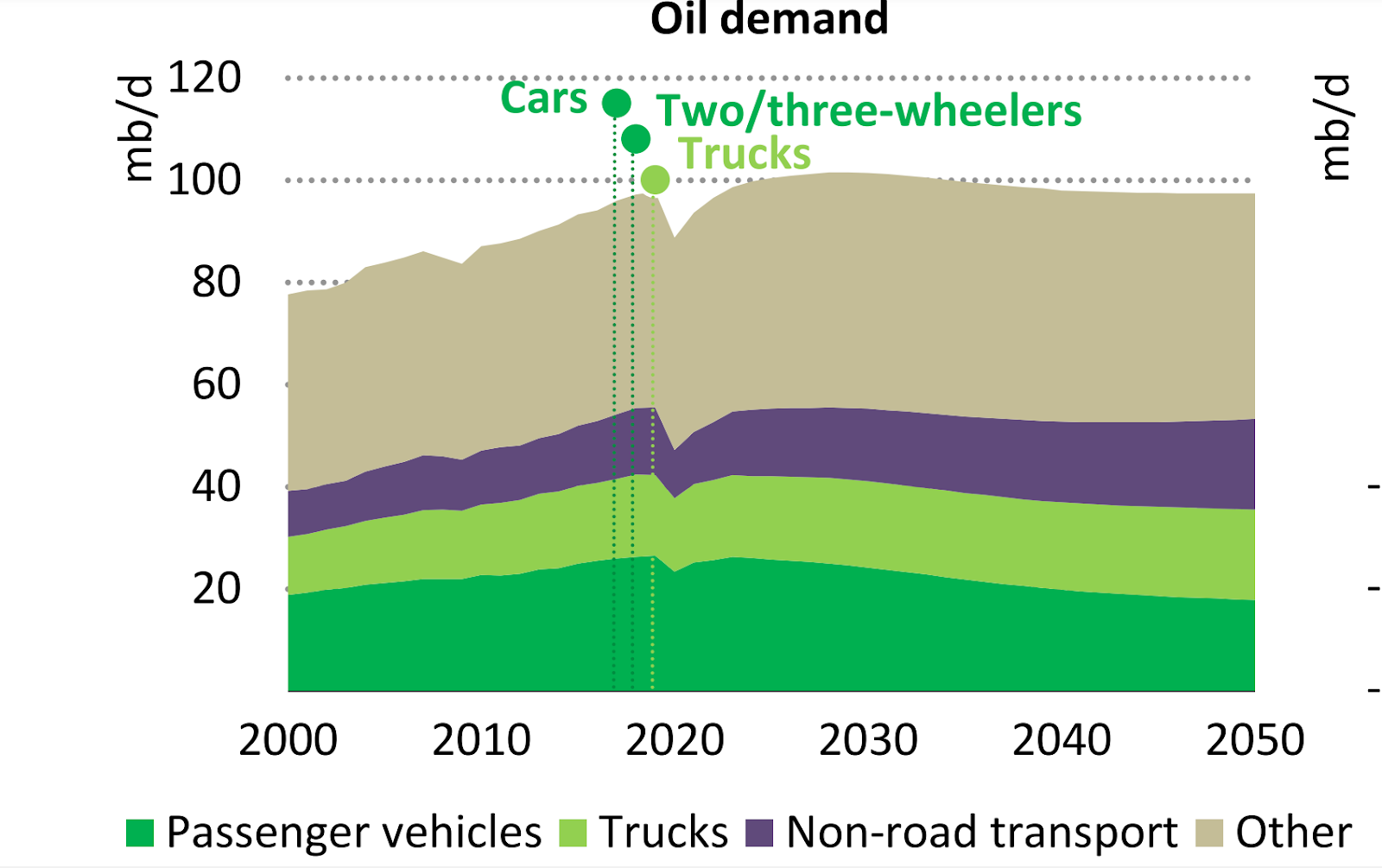Peak Oil, Augmented Forests, & Energy from Feathers (Patreon)
Content
Peak Oil is Here Again

IEA 2023 projection for global oil demand in million barrels per day
According to the International Energy Agency, we are on track to see fossil fuel use peak before 2030. In their recent World Energy Outlook, they say that clean energy supply is now sufficient for global demand for fossil fuels to falter and enter a terminal decline. While the share of coal, oil, and natural gas in the global energy supply has been stuck around 80% for decades, they say that by 2030 it’ll go down to about 73%. Then again, peak oil has been predicted several times before and it didn’t come to pass, so don’t hold your breath. Full report here.
Researchers Scan Forest with Augmented Reality

Ecologists at Rice University used augmented reality to capture and analyse what’s going on in Tanzania's tropical forests. The Microsoft HoloLens 2 headset allowed them to control environmental scanners and then digitally construct the forest and its animals in a 3D model. Their project logged 19 species in their natural habitat and revealed that larger surface areas were associated with greater species diversity. Press release here, paper here.
Green Energy from Chicken Feathers

Image Source: Soon et al., Applied Materials & Interfaces (2023)
Ever wonder what happens to the feathers that once adorned the chicken you just roasted? Most of them get burned. But researchers at ETH Zurich and Nanyang Technological University Singapore had a better idea: build hydrogen fuel cells with them. They removed keratin – the material that makes up nails, hair, and you guessed it, feathers – from the chicken down, and used it for the membrane in hydrogen fuel cells, where water and oxygen react to form water and release energy. It’s an eco-friendly and cheap solution that along the way also solves a waste problem – smart!. Press release here, paper here.
